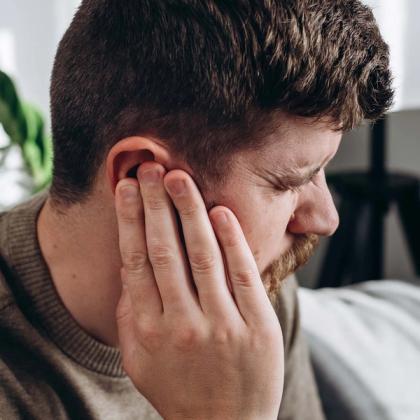This podcast episode is worth 0.24 CPD credits. Upgrade to Pro
Tinnitus can be frustrating for both patients and clinicians as there is some misinformation and misunderstanding about its aetiology and treatment options. For some people with tinnitus there is significant distress and a reduced quality of life that may not always be appreciated by healthcare professionals. Fortunately, most cases of tinnitus can be treated successfully, and there are a number of management techniques that can reduce its impact, including sound therapy, stress reduction and treatment of any underlying causes. In this episode, Dr Roger Henderson gives an overview of this common problem, with a reminder of how to evaluate it and when to refer a patient to secondary care.
Key take-home points
- Tinnitus is the perception of a sound without a corresponding external source.
- In most people with tinnitus some degree of hearing loss is present.
- Up to 10% of the adult population will have tinnitus at some point in their lifetime.
- The incidence of tinnitus increases progressively with age. It affects 5% of people aged 20–30 years and 12% of people over the age of 60.
- Risk factors include hearing loss, old age, noise exposure and smoking.
- Many cases of tinnitus have no identifiable cause.
- Possible subjective causes include ontological factors, psychological causes, temporomandibular joint dysfunction, neurological and infectious causes and medication.
- Possible objective causes include pulsatile causes, ear-nose-and-throat muscle spasm and spontaneous otoacoustic emissions.
- The Weber and Rinne tests can be used in general practice to differentiate between conductive and sensorineural hearing loss. Tuning fork tests are not diagnostic and should only be used to direct further management.
- Patients with tinnitus and hearing loss should be referred to an audiologist for a specialist hearing assessment.
- People with primary tinnitus have symmetric sensorineural hearing loss. Conductive hearing loss or unilateral sensorineural hearing loss indicates secondary tinnitus.
- Red-flag symptoms include focal neurological deficit, severe vestibular symptoms, sudden onset hearing loss, pulsatile tinnitus and unilateral hearing loss.
- Tinnitus support or counselling (sometimes known as "hearing therapy") is a cornerstone of tinnitus management.
- Relaxation techniques or relaxing background music can distract or mask tinnitus in some people.
- Cognitive behaviour therapy can be helpful, but tinnitus-retraining therapy is no longer recommended.
- Many medicines have been trialled in patients with tinnitus, but none have sufficient evidence to recommend them for routine use.
- Patients with tinnitus, especially those who use headphones or earphones regularly, should be advised about noise-induced hearing loss and how to prevent it.
Key references
- Bauer CA. N Engl J Med. 2018;378:1224-1231. doi: 10.1056/NEJMcp1506631.
- Lee HY, Jung DJ. J Audiol Otol. 2023;27(4):181-192. doi: 10.7874/jao.2023.00416.
- NHS. 2019. https://www.england.nhs.uk/wp-content/uploads/2017/09/joint-strategic-needs-assessment-guidance-jul19.pdf.
- NICE. 2020. https://www.nice.org.uk/guidance/ng155.
- Esmaili AA, Renton J. Aust J Gen Pract. 2018;47(4):205-208. doi: 10.31128/AJGP-12-17-4420.
- Cima RFF, et al. HNO. 2019;67:10-42. doi: 10.1007/s00106-019-0633-7.
- NICE. 2023. https://www.nice.org.uk/guidance/ng98.
- RNID. https://rnid.org.uk/information-and-support/ear-health/protect-your-hearing/.
- Tinnitus UK. https://tinnitus.org.uk/for-professionals/healthcare-professionals/tinnitus-guidance-for-gps/.
Create an account to add page annotations
Annotations allow you to add information to this page that would be handy to have on hand during a consultation. E.g. a website or number. This information will always show when you visit this page.
